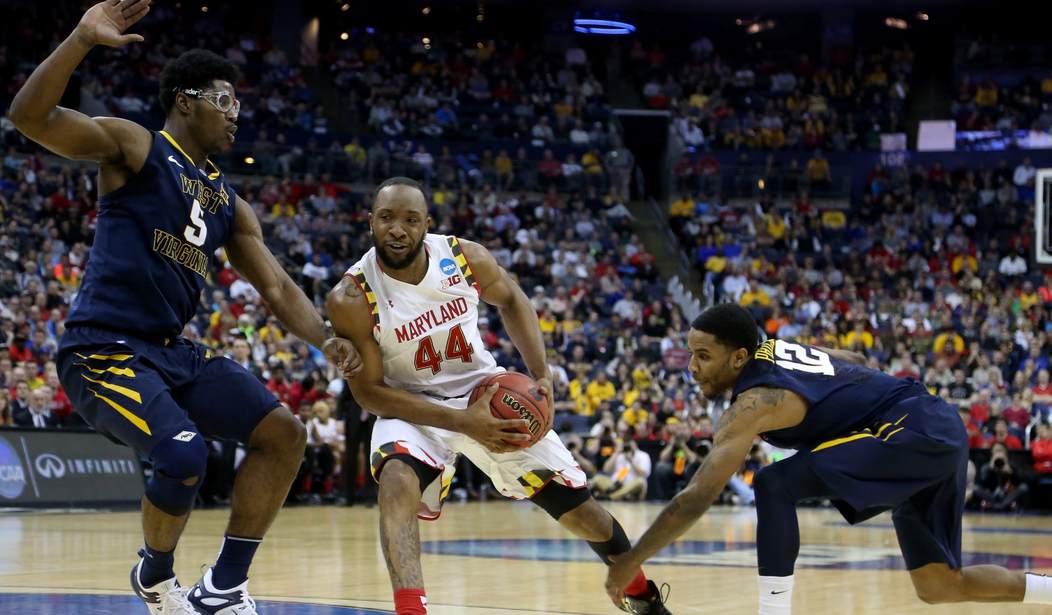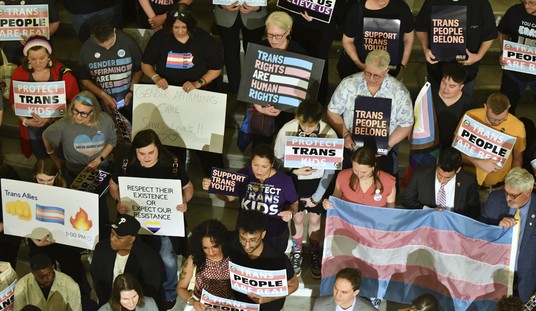In the spring of 2014, a black man (given the pseudonym “James Hays”) was accused of sexual assault by a white female fellow student (pseudonym “Mary Gill”) for an unwanted kiss attempt. The campus removed Hays from his dorm, allegedly for Gill’s safety. After this ordeal, his mother recalled, the man “just stayed in his room and was severely depressed, never left his bed. He couldn’t eat or sleep. Every night at home he had horrible screaming nightmares. … He said he thought about suicide all the time, and he tried once.”
When asked if there was a racial element in the case, Hays’ mother said, “As black Americans, we have always been cautioned about white women wanting to entrap black men, especially in the South, where interracial dating was taboo. When my son and this girl first started ‘fooling around,’ he told me reluctantly [that] she didn’t want anyone to know. Especially her ex. That’s a big red flag for me.”
This young man suffered from post-traumatic stress disorder and attempted suicide, following a false accusation of sexual assault that got him removed from his room and demonized by society. This and other harrowing stories of lives destroyed emerge in a new book, The Campus Rape Frenzy: The Attack on Due Process at America’s Universities. Stuart Taylor, a co-author of the book, told PJ Media that black men are “probably disproportionately” accused of sexual assault, and “probably disproportionately black men accused by white women.”
“A lot of people talk about the frequency with which black athletes are accused by white women,” Taylor noted. “There’s a simmering tension here between two groups that like to complain they’re oppressed: Extreme feminists talking about women, and people concerned about the racial targeting of blacks.”
Taylor’s book addresses a large movement in politics and the universities which uses false statistics to argue that one in five women get sexually abused on a college campus. If this statistic were true, 2 million of the approximately 10 million women enrolled as undergraduates in American colleges and universities would be sexually assaulted while at college, which translates to between 400,000 and 500,000 sexual assaults per year. For comparison, according to the FBI’s Uniform Crime Reports, there were 116,645 rapes in the entire United States (a nation of 160 million women) in 2014.
The 1990 Clery Act requires all colleges to report the total number of student sexual assaults, and between the years 2012 and 2014, universities reported an annual average of between 4,558 and 5,335 sexual assaults. Compared to the 1-in-5 statistic, that is a ratio of almost 100 to 1. As it turns out, surveys backing up the 1-in-5 statistic do not actually ask students if they were raped or sexually assaulted. Instead, they ask broad questions about sexual activity, and then interpret certain types of activity as sexual assault.
This movement follows the mindset of liberal feminist Catharine MacKinnon, who infamously declared, “Politically, I call it rape whenever a woman has sex and feels violated.” Due to her mentality, the Department of Education’s Office of Civil Rights (OCR) has established separate tribunals to try sexual assault on college campuses, keeping the matter outside the criminal justice system, which is allegedly biased in favor of rapists. (The Campus Rape Frenzy lists case after case where the justice system has worked fairly and convicted real rapists, awarding them long prison sentences.)
To make matters worse, many college administrators have been “trained” to believe that every alleged victim of sexual assault is telling the truth, no matter the evidence to the contrary. This belief comes from misleading figures from a retired University of Massachusetts psychologist, David Lisak. Lisak’s 2002 study, which did not involve a single case of campus sexual assault, has been used to support the idea that 90 percent of such assault is perpetrated by serial predators, who must be convicted by any means necessary.
In short, this system is extremely prejudicial against anyone accused of sexual assault on college campuses, depriving the accused of basic due process rights guaranteed under the Constitution, and favoring the accuser to an absurd degree.
This trend becomes particularly ugly when a black man is accused of sexual assault, forcibly removed from his dormitory, denied the right to defend himself, and (often) expelled. As Harvard Law Professor Janet Halley wrote in the Harvard Law Review:
From Emmett Till to the Central Park Five, American racial history is laced with vendetta-like scandals in which black men are accused of sexually assaulting white women that become reverse scandals when it is revealed that the accused men were not wrongdoers at all. No reader of To Kill a Mockingbird should be able to forget how this American classic convinces its readers that some of these accusations will be based on racially exploitative evasions of responsibility by white women who willingly had sex with black men and then disavowed it as rape.
But nothing so malign need be at work when black men show up in the dock: morning-after remorse can make sex that seemed like a good idea at the time look really alarming in retrospect; and the general social disadvantage that black men continue to carry in our culture can make it easier for everyone in the adjudicative process to put the blame on them.
For this and other reasons, Halley — no conservative — has fought against “affirmative consent” laws that require firm statements of “yes” at every stage of sexual activity, a favored cause among so-called “victims rights” activists. Such laws have been passed in California and New York.
The campus rape frenzy is alive and well on college campuses, and the case of Dez Wells (the man pictured at the top of this article) in particular illustrates the ugly racial turn it can take.
In 2012, Cincinnati’s Xavier University expelled black basketball star Dez Wells for allegedly raping another student. But a contemporaneous criminal investigation convinced the county prosecutor that the allegation was false — and the prosecutor even considered bringing criminal charges against Wells’ accuser.
Wells had sex with Kristen Rogers at a party. None of the other students at the party reported any problems, saying the sex seemed consensual. Afterward, Rogers complained to campus police that Wells had raped her, but a medical exam revealed no evidence of trauma. Hamilton County Prosecuting Attorney Joseph Deters said two veteran investigators found Rogers “not credible,” and added that “there was … discussion of charging her with a crime” for filing a false accusation.
Nevertheless, Xavier refused Deters’ request that it defer action against Wells until his office could complete its inquiry. The rules made it hard for Wells to defend himself: he was not even allowed to be represented by anyone with a law degree or even “specialized legal training,” and he was prohibited from cross-examining his accuser.
Despite evidence to the contrary, Xavier ruled Wells “responsible for rape” and expelled him. A few days later, a grand jury found that there was no probable cause to believe Wells had committed any crime.
In an unusual move, Deters made a public statement exonerating Wells, and spoke to the NCAA prompting it to allow Wells to play immediately after he transferred to the University of Maryland. Despite Deters’ actions, the myth of Wells as a rapist survived, and two women yelled (and tweeted) jabs at Wells during an NCAA championship basketball game in March 2015, declaring “No means No!” and “Dez is still a [expletive] RAPIST.” Though they later apologized, it seems this star athlete could not entirely escape the rape allegations.
Another case, that of North Carolina’s Appalachian State University against black football player Lanston Tanyi, also shows the one-sided nature of these tribunals. First, Alex Miller claimed that Tanyi and his roommate had sexually assaulted her, but even with the deck stacked against Tanyi, the school had to rule against his accuser because witnesses said the sex was consensual.
A second accuser, Meaghan Creed, alleged that Tanyi, his same roommate, and three other men, whom she identified only as “big” and “black,” had raped her. Creed’s credibility immediately took a huge hit when she claimed that Tanyi, who didn’t smoke, was smoking when he raped her. The college had to acquit Tanyi again.
Nevertheless, more than 100 students protested these decisions, wearing black tape across their mouths holding signs that said, “Blame Perpetrators, Not Victims” and “End Rape Culture.” An Appalachian State administrator granted Creed’s appeal and threw out the ruling for Tanyi, on the grounds that the university did not “present sufficient witness and/or documentary evidence to establish the violation.” In other words, the school acknowledged it had brought charges against the black athlete without sufficient evidence to prove him guilty. They subjected him to “double jeopardy” for the same offense.
Even this panel could not rule Tanyi guilty of sexual assault. But it did find him guilty of harassment for allegedly laughing at Creed some days after the now-ruled-to-be-unproved assault. The school removed him from the football team, and he transferred to Colorado State University. He then sued Appalachian State, which paid him a $100,000 settlement.
These stories are harrowing, even without the racial element. It is fundamentally important to restore due process rights to those accused of sexual assault on college campuses, but the trend of accusations against athletes — who are disproportionately black — is particularly pernicious.
In recent years, protests have built over the cry that “Black Lives Matter.” While police arguably do target blacks disproportionately, there may perhaps be another social trend against these minorities, one that brands even those found innocent to be rapists. Black lives should matter, not just on the streets, but in the schools as well.









Join the conversation as a VIP Member